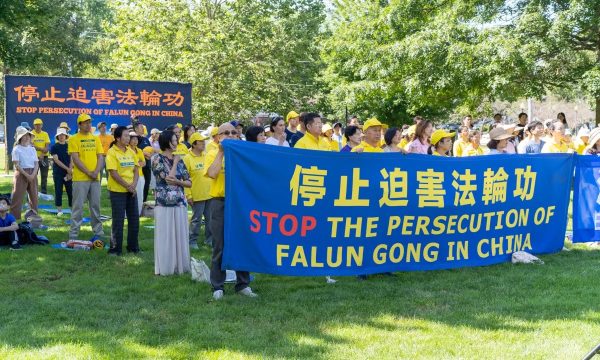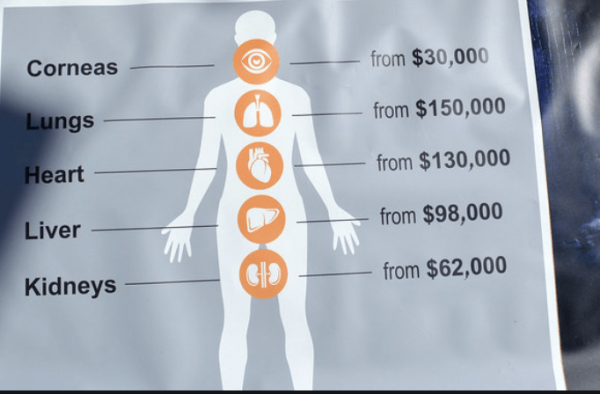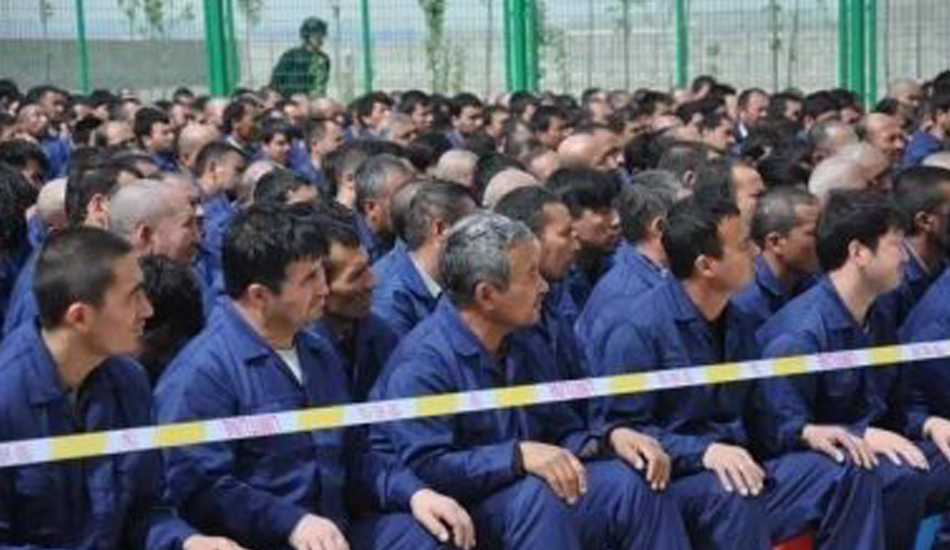As lawmakers and witnesses rally in support of Senate Bills 1040 and 262, aimed at curbing the practice of forced organ harvesting in China, the urgency of addressing this human rights crisis has once again come into the limelight.
In Texas, the bipartisan bill was championed by State Sen. Lois Kolkhorst (R-Brenham) and seeks to ensure that health benefit plans in the state do not cover organ transplants involving organs from countries where governments sponsor or condone forced organ harvesting. Often termed “transplant tourism,” the sinister practice involves the extraction of organs from unwilling donors, frequently targeting marginalized and persecuted groups including Falun Gong adherents and Uyghur Muslims.
S.B. 1040 also aims to put concrete measures in place to prevent Texans from unwittingly participating in or financing these “vile practices.”

Though the bill was officially signed into law by Texas Gov. Greg Abbott in June 2023, the movement against forced organ harvesting is far from over. Several other states are poised to follow Texas’ lead — with Missouri, Ohio, and North Carolina expected to advance similar legislation in the coming weeks.
MORE ON S.B. 1040 & 262:
- Texas Takes Stand Against Organ Harvesting in China With Groundbreaking Legislation
- New Utah Law Takes Aim at Communist China’s Organ Harvesting Atrocities
- House of Representatives Passes ‘Stop Forced Organ Harvesting Act’
On March 14, Utah Gov. Spencer Cox signed into law a similar act that was first passed on March 1 by the state’s senate and house. The bill also prohibits U.S. health providers from covering or providing post-care for organ transplant surgery performed in China. The state of Idaho also passed a similar bill that will go into effect on July 1, 2024.
Success
You are now signed up for our newsletter
Success
Check your email to complete sign up
But unfortunately, not all states are in alignment. On April 10, Arizona Gov. Katie Hobbs vetoed a similar resolution without providing an explanation, Vision Times was told. The development highlights the ongoing political and ethical challenges in achieving nationwide consensus on the issue.

Voices of the victims
During a hearing at the Texas State Capitol in May 2023, witnesses provided harrowing testimonies of the brutal realities of forced organ harvesting in China. The accounts painted a vivid picture of the human rights violations that have been occurring under the radar across Chinese labor camps and jails.
“I was sterilized by force, accompanied by many other women,” recalled a woman who was serving a sentence in a Chinese labor camp in May 2019. The survivor also shed light on the scale and systematic nature of the abuses.

Also present in the hearing were State Rep. Tom Oliverson (R-Cypress) and State Rep. Salman Bhojani (D-Euless), as they expressed their firm support for the bill. Oliverson detailed his firsthand observations of Chinese hospitals advertising organs in both English and Mandarin. “Hearts available, donors standing by,” he quoted from hospital websites. “These people are being sacrificed for financial gain by a government that doesn’t believe they are human beings.”
A global concern
For years now, the Chinese Communist Party (CCP) has come under fire for its involvement in forced organ harvesting practices. Evidence and testimonies have revealed that the CCP systematically targets marginalized groups, such as Falun Gong practitioners, Uyghur Muslims, Tibetans, and other religious and ethnic minorities by detaining them in labor camps where they are subjected to invasive medical testing against their well.

Shockingly, the CCP has also been accused of advertising live human organs for sale by listing available hearts, livers, and kidneys as if they were items on a shopping list. This gruesome commodification of human lives for profit underscores the urgent need for international condemnation and legislative action to halt these atrocities.
“With this law, we send a strong message to Beijing that all human life is precious and worthy of protection,” Oliverson told The Epoch Times in 2023. He also added that he was “absolutely, unbelievably horrified,” upon learning how some of the victims were still conscious at the time their organs were harvested.
MORE ON THIS: Chinese Officials Advertise Human Organs on Public Website, Raising Scrutiny About Transplant Abuse
Legislative momentum
As Texas, Utah, and Idaho take a step in the right direction, it joins a coalition of states taking a stand against forced organ harvesting. The bill’s passage would not only prevent residents in these states from indirectly supporting these practices, but also sends a strong message to the international community about America’s stance on human rights’ abuses.
Beyond state-level actions, the U.S. Congress is also taking steps to address related human rights violations in China. Recent congressional actions have targeted companies like Beijing Genomics Institute and Wuxi AppTec for their roles in illegally collecting genetic material and tracking ethnic minorities in China, particularly in the Xinjiang region, where the CCP is conducting what many describe as a genocide against the Uyghur people.

These companies are already under U.S. export control restrictions, but the legislative efforts aim to further curb their activities and hold them accountable for their involvement in human rights abuses.
Several reports have also shed light on a network of concentration camps where an estimated one million Uyghur Muslims are detained, the Council on Foreign Relations finds. These camps are part of a systematic effort to forcibly assimilate Uyghurs into the dominant Han Chinese culture. Detainees are subjected to intense indoctrination, where they are compelled to abandon their religious beliefs, language, and cultural practices.
Reports also indicate widespread human rights abuses, including forced labor, torture, and sexual abuse.







